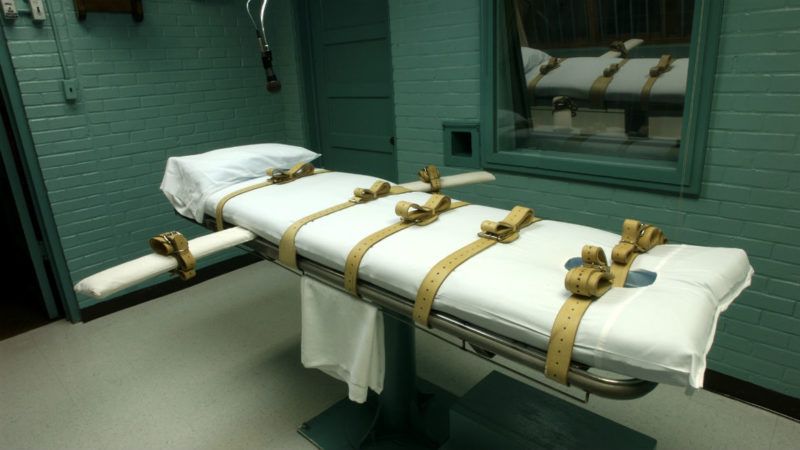The Trouble with Tennessee's Lethal Injection Drugs
"This whole question of how we kill our prisoners is sort of a sideshow when the system is as broken as it is."

Tennessee plans to execute three death row inmates this year, despite serious concerns about the state's lethal injection drugs.
The inmates facing execution are Nicholas Todd Sutton (scheduled to be killed on February 20), Oscar Franklin Smith (scheduled for June 4), and Harold Wayne Nichols (scheduled for August 4). Last week, Smith's lawyers filed a complaint detailing problems with potassium chloride, one of drugs in the state's three-drug protocol. The drug induces cardiac arrest, but it is possible for consciousness to continue for as long as three minutes after the heart has already stopped. Meanwhile, the intravenous injection of the drug can cause a "searing, burning" sensation throughout the veins. With the administration of paralytics, execution staff and witnesses are prevented from seeing an inmate's true reaction to the painful process.
The complaint also includes an email between state prison officials showing that the state has been aware as early as August 2018 that the drug is not mixing properly. Administered intravenously, the compounded potassium chloride will feel like rocks entering the body. It may also fail to reach the heart, meaning that the subject could die in another, even more painful way: slowly suffocated to death by the previously administered paralytic.
Smith's attorneys also note that the state's supply of vecuronium bromide, the paralytic in its three-drug solution, expired in November 2019. Emails included in the complaint show that the state is interested in obtaining pentobarbital as a replacement. This may be less painful than Tennessee's current three-drug protocol, but pentobarbital was linked to a set of botched executions in Oklahoma in 2014.
At least three death row inmates have chosen to die by electric chair since 2018, believing the state's three-drug protocol to be a worse fate.
"This whole question of how we kill our prisoners is sort of a sideshow when the system is as broken as it is," Abraham Bonowitz, co-director of Death Penalty Action, tells Reason. "All of that really exposes the flaws of the system."
This isn't the first time a state has behaved improperly when faced with a limited supply of execution drugs. Arkansas, for example, rushed to execute four of its death row inmates in 2017 because its drugs were expiring. Among those killed was Ledell Lee, whom the Innocence Project and the American Civil Liberties Union now believe died for a murder that he likely did not commit. And in 2014, Louisiana tricked a hospital into providing a drug needed to carry out an execution. The state suggested that the drug was needed for a "medical patient," leading the hospital to believe it was treating a sick inmate.
